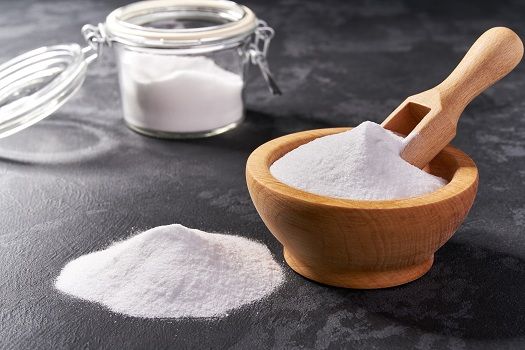Can I Use Baking Soda to Clean My Silver Coins?
Since it was first produced and sold in the United States in the mid-1800s, baking soda has been a popular product with many useful purposes. One of these is to clean certain valuable items in a safe, effective way. As for whether or not baking soda damages silver coins, the short answer is typically no. The experts from First National Bullion and Coin, San Diego precious metals dealers with years of experience collectors can trust, explain what you need to know about using sodium bicarbonate on silver coins.
To Clean or Not to Clean
Some coin experts firmly assert valuable or older coins should never be cleaned. The argument here is that making such coins look like cleaner, newer ones diminishes the intended appearance and possibly the value. However, others in the precious metals world believe if you’re going to clean silver coins now and then, it’s best to do so with a substance like baking soda. It has a long history of being safely used for a wide range of cleaning needs, and it’s not corrosive like other products.
What Baking Soda Does & Doesn’t Do to Silver Coins
Baking soda won’t make silver coins glossy or unnaturally shiny. This can be a good thing if you want a way to clean your coins without actually changing their appearance. What baking soda does do well is remove accumulated dirt or light surface debris on silver coins.
Using Baking Soda on Silver Coins
If you have really valuable or older collectible coins, check with a coin specialist or precious metals professional first to get a more specific opinion about cleaning. If you do opt to gently clean your silver coins with baking soda, you’ll need the following things:
• A dish, bowl, and baking soda
• Water
• A soft cloth and/or soft toothbrush
• The silver coins you wish to clean
Mix the baking soda with some water in a bowl. The dish is used to put the coins on so you can easily handle them before and after the cleaning process. You’ll get some residue if you use pure baking soda, which is why it’s recommended to mix it with warm or heated water. This also creates a reaction that helps with the cleaning.
You can either place your coins directly in the mixture of water and baking soda or use the soft cloth to do the cleaning. If you go with the second option, dip the cloth in the mixture and gently rub the coins with the cloth. If you immerse your silver coins in the baking soda mixture, the cloth can be used to gently rub and dry them. Another variation on the cleaning process is to dip a soft toothbrush in the baking soda mixture and use it to gently clean your coins.
Regardless of the cleaning method you use with baking soda, clean one coin at a time. Doing so allows you to inspect each coin after it’s cleaned. You can also stop the cleaning process if you have any concerns about the results.
Whether they’re looking for expert advice on taking care of their precious metals or they want to buy silver bullion, San Diego residents should work with trustworthy precious metals dealers who offer high-quality service and have years of experience. Call on the industry-leading professionals at First National Bullion when you’re ready to invest in precious metals, including silver, gold, platinum, and palladium. Give us a call today at (858) 304-7580.
The statements made in this blog are opinions, and past performance is not indicative of future returns. Precious metals, like all investments, carry risk. Precious metals and coins may appreciate, depreciate, or stay the same in cash value depending on a variety of factors. First National Bullion does not guarantee, and its website and employees make no representation, that any metals for sale will appreciate sufficiently to earn the customers a profit. The decision to buy, sell, or borrow precious metals and which precious metals to purchase, borrow, or sell are made at the customer’s sole discretion.


